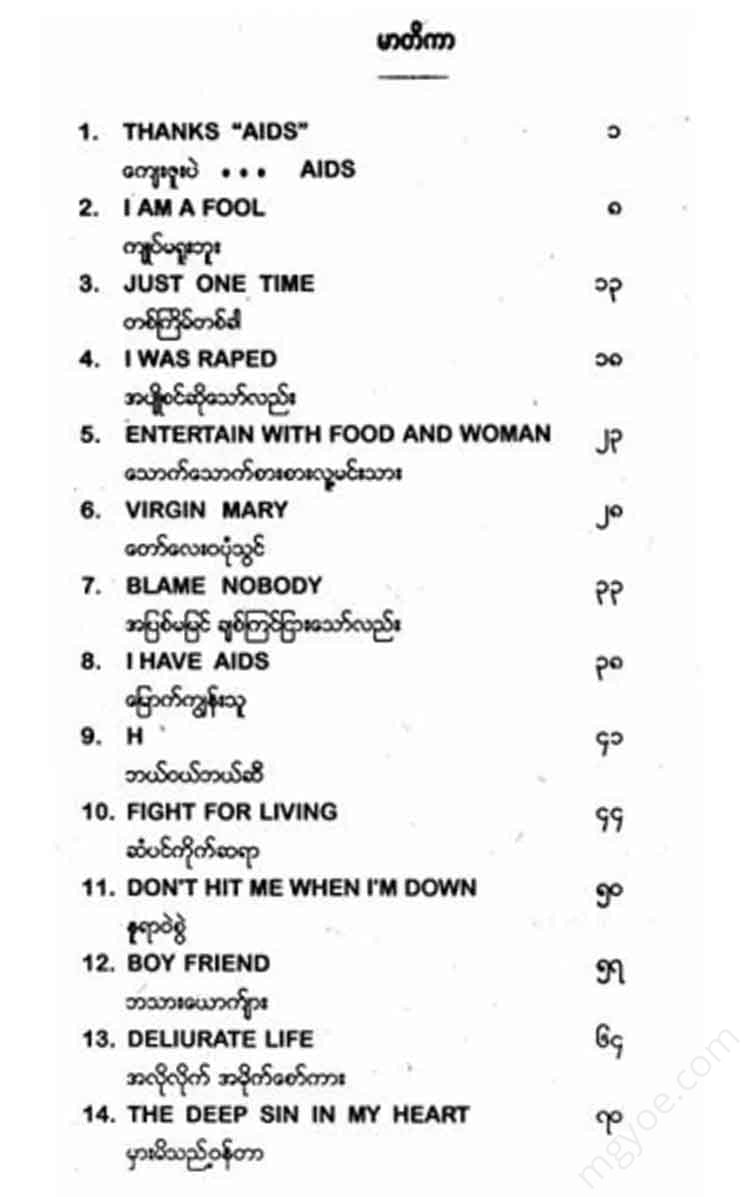Other Websites
Thu Maung - Thank you for the support and open letters.
Thu Maung - Thank you for the support and open letters.
Couldn't load pickup availability
Introduction
The introduction is necessary because it is a book that has been given to the public for reading. In fact, the texts I have translated contain the texts of my own authors, the authors of the original book, and the stories of how the book came to be, so this introduction is unnecessary. Readers tend to skip over the "Introduction," "Afterword," and "Foreword." Even if they do, it is not easy to read the following texts because they already contain many references.
There is little to say that in translating the texts, I have repeated the rules of “translation” and have also added my own words. Some are translated directly without using “သ” or “မှ” and some are translated in a ‘smooth manner’ to suit the Burmese language and eye. Some of the events in the manuscript reflect the current culture of Thailand and are not suitable for the Burmese ears and eyes, so I have adapted them to suit the Burmese culture.
It is translated in a word-for-word manner. Another thing is that ••• When the manuscripts were originally translated (because they did not think that they would be published as a single Dhamma book like this), they were translated in various styles to suit the policy and color of his magazine and journal. For example, some manuscripts were written in spoken language and some in written prose.
This issue is also a problem for the collectively published book. For this, I apologize in advance. There are other minor errors, such as the names of the Yoddhayya. Since the original book was written in English, I used the English pronunciation, but I don't know how the names are pronounced in Yoddhayya. Therefore, I have written them according to the English pronunciation. The pronunciation may be wrong.
According to the original author, KOYA ARIYOSHI, he has carefully selected the experiences of over 800 patients. His writings are not just about basic health knowledge.
It is intended to be easy to understand for the general public, the general public. However, it is written that it can be very useful in health education and is effective. This book is important for all classes of people. He states that the stories in this book are full of emotions because the narrators and writers of the patients recount their own experiences, and therefore some patients can even be considered “writers”.
When I put that information together, I had to translate this book.
To be honest, when my friend "Dr. Khin Mya Lwin" gave me the Lessons of Life booklet as a gift, I had no intention of translating it. I just thought he wanted me to read it and wrote it down. After reading it, I wanted to share it with people around me, both young and old. Here, the original book is written in English.
It was difficult for some readers. Therefore, I translated it into Burmese as much as I could and published it in magazines and journals. When the manuscripts gradually spread, I realized that the readers liked it. Then the idea of translating the entire book came to me. In the meantime, I printed all the manuscripts together. My literary friends suggested that I should publish a booklet. Therefore, at first, I planned to donate the Dhamma to an outside publisher without charging a manuscript fee and at a low price. While planning this, I came to the conclusion that it would be more beneficial if this collection of manuscripts could be officially distributed nationwide as a Dhamma donation by a relevant department. Therefore, Dr. Khin Mya Lwin and the consultant introduced Dr. Tin Nyunt from the Department of Health Education to me. After several meetings, the three of us discussed it and presented it to the relevant departments, and then we planned to publish and distribute the Dhamma donation booklet.
However, for some reason, the plan fell through and the manuscripts were left as is. Now, after a conversation with U Thein Lwin (Shwe Hintha Saper), the book has been re-implemented.
Thu Maung (8.8. 2008)





